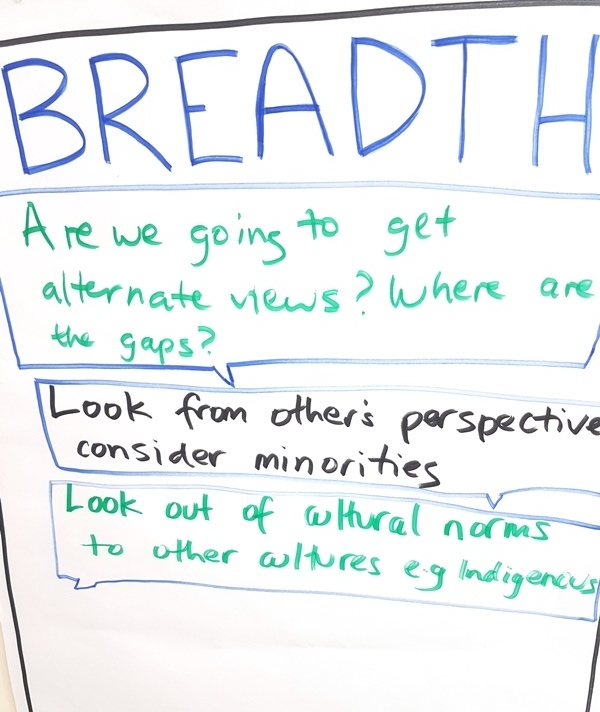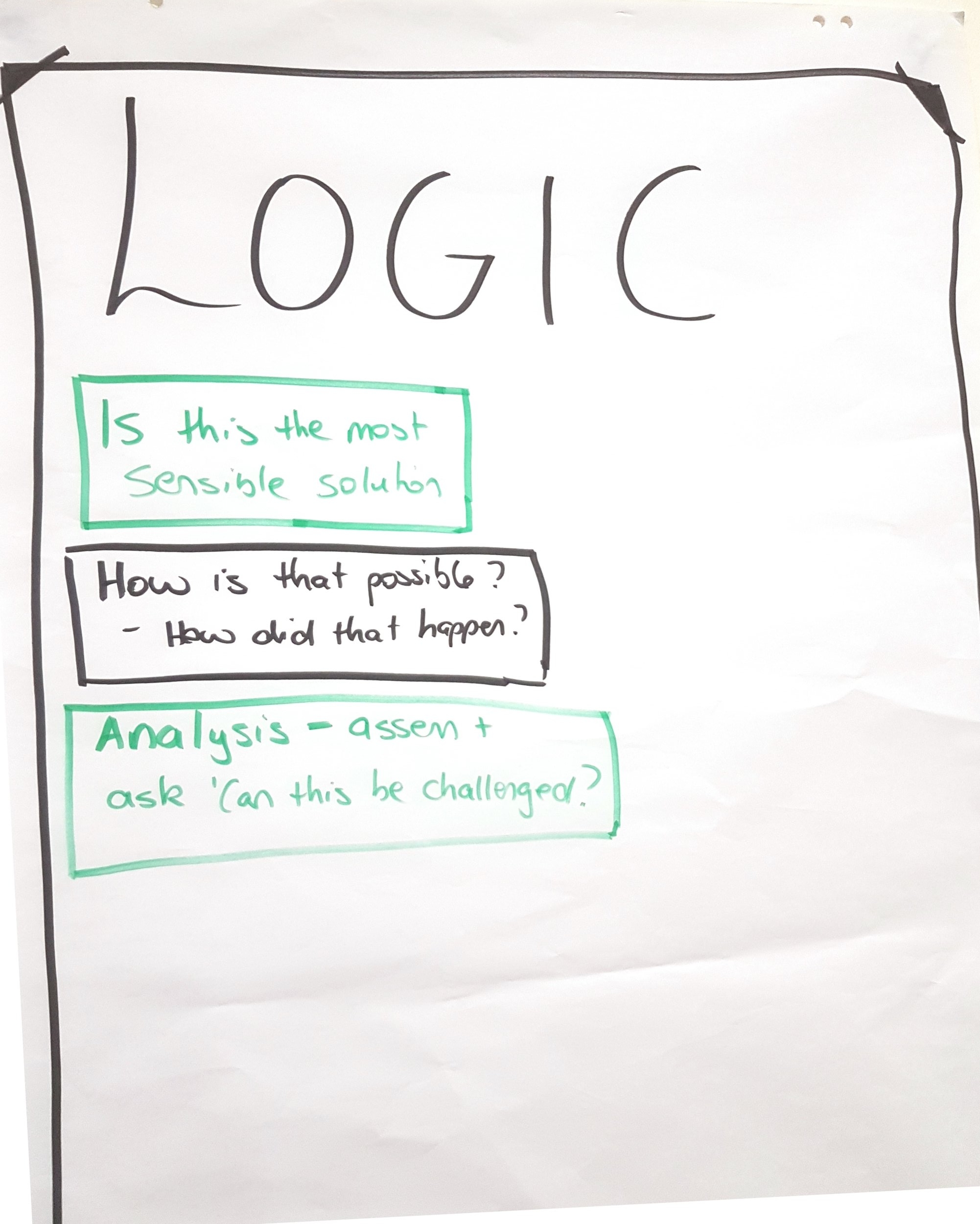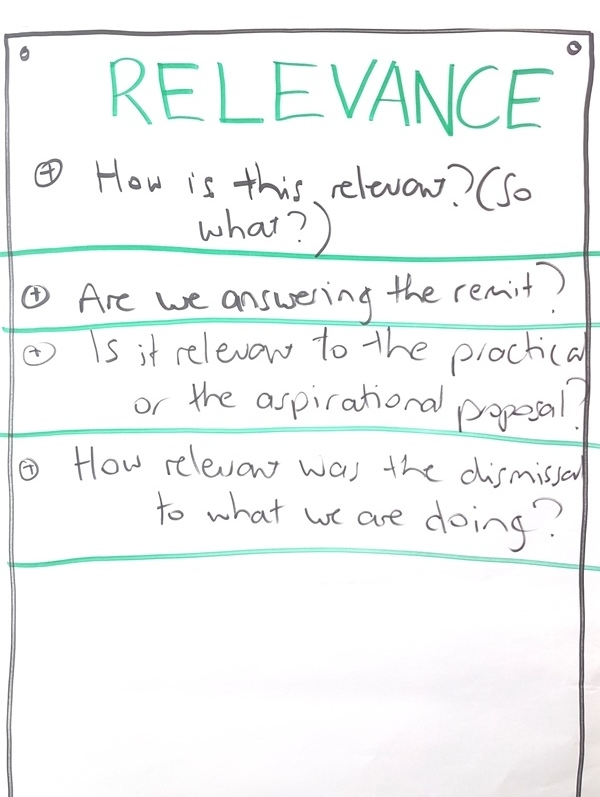Recently we posted an interview with Lyn Carson of Active Democracy and the newDemocracy Foundation, who is working in partnership with MosaicLab to research what happens when critical thinking skills, techniques and concepts are introduced to participants in a deliberative process.
Today, in Part 2, we're talking with MosaicLab co-founder Nicole Hunter, an experienced facilitator with extensive experience in deliberative engagement. Nicole, alongside MosaicLab's other two co-founders Keith Greaves and Kimbra White, has been working to integrate critical thinking theories into on-ground processes.
View an earlier post introducing this exciting, new study here: ‘A new venture into critical thinking’, and the previous interview (Part 1) here: 'Critical thinking study insights Part 1: The researcher'.
INTERVIEW WITH THE FACILITATOR
Nicole Hunter, Co-Founder, MosaicLab
Why did MosaicLab get involved in this study?
Having run many deliberative forums, we were increasingly interested in the participant’s journey, including skills they were learning and how they were processing and using information. We spoke with Dr. Lyn Carson – an eminent expert in this area – and discussed how we could apply academic thinking and research to our work. Carson indicated that we could look at helping participants to learn these skills during each process and she offered to do the research with us.
Nicole Hunter facilitating deliberations for a recent MosaicLab project- the Future Melbourne 2026 Citizens' Jury.
What has MosaicLab’s role been in the project?
We funded the work and implemented the ideas within our sessions. We have also designed some tools and resources that have helped us to deliver these concepts more successfully (these will be available for others to use soon!).
“The aim is to help people to see different viewpoints and to encourage them to challenge their own patterns of thinking during a process.”
How would you describe the facilitator’s role when it comes to applying these concepts in a session?
As facilitators, our role is to actively reveal these different ‘modes of thinking’ to participants – slowing down normal thought processes and placing – slowing down their thought processes and actively placing a magnifying glass on thinking, judging and decision-making patterns we all use. The aim is to help people to see different viewpoints and to encourage them to challenge their own patterns of thinking during a process.
How has introducing these concepts changed participants or their experiences?
It’s early days, but we believe that as a result of weaving these concepts throughout the processes we run that participants are asking different questions of each other and of witnesses (speakers and experts). In this way evidence/information is tested more thoroughly.
Questions and thoughts devised by members of the Geelong Citizens' Jury in a critical thinking activity to help them to question 'expert' speakers and assess information. The list included ideas such as 'look out for others perspectives and respect minorities' and questions like 'is this the most sensible solution?' and 'are we answering the remit?'
What’s the most surprising thing to come out of this research so far?
The quality of the sorts of questions has lifted enormously – this process can really help people feel more confident testing ‘experts’ and not just accepting evidence as ‘true’. In so doing, we find groups are more thoroughly testing and explaining the evidence or rationale behind their own group decisions.
MosaicLab Co-Founder Keith Greaves facilitating the Barwon Water People's Panel Process in February 2017. Critical thinking concepts and exercises were introduced to the group at various points in each session.
What challenges have you faced?
Our challenges included:
- Simplifying the language (which we tackled through use of visual aids to explain things).
- Coming up with examples of questions participants can ask that relate to their specific project without ‘leading’ them (an ongoing challenge)
- Weaving critical thinking ideas throughout the process (because you can’t just do it at the start and then leave it) by building skills into almost every activity, template etc.
“We hope to give participants skills they can use throughout each process and beyond – skills that allow them to confidently test any information purported to be ‘expertise’.”
What do you hope the impact of this work will be?
We hope to give participants skills they can use throughout each process and beyond – skills that allow them to confidently test any information purported to be ‘expertise’. Ultimately, we want to give a stronger voice to everyday people, particularly when they interact with people others in positions of power or control.
Knowledge is a powerful and, at times, dominating tool. By helping people question information provided it helps them become more confident in their ability to explore, understand and navigate complex problems.
MosaicLab's new critical thinking exercises and cards (which will be ready for purchase in our online store shortly) were discussed at the 2016 IAP2 Australasia Conference in a session led by our friends at Democracy Co.
What’s the biggest take away for MosaicLab from this research?
Critical thinking is everywhere. We all use these skills, not always carefully, and often inaccurately. By better understanding how expert information is presented and how our brains can be biased can help with more balanced interrogation of information.
Anything else you’d like to add?
We have learnt so much from our participants and we thank them for exuberantly taking on the challenge when we have put it in front of them. We also see huge possibilities for improvements and expansions of this work into the future – so watch this space!!
FREE RESOURCE
A printable critical thinking 'starter kit' - an overview of key critical thinking skills and some questions that might relate to each skill. Great for use as a prompt or handout when discussing critical thinking in group settings.
Perfect for sharing, printing or filing away for future use. Click the image to subscribe to our monthly e-newsletter 'The Discussion' and grab our printable critical thinking 'starter kit' .
ENJOYED THIS POST?
Stay in the know! Get new posts, actionable ideas and fabulous free resources delivered to your inbox - subscribe to our monthly e-newsletter 'the Discussion'.









